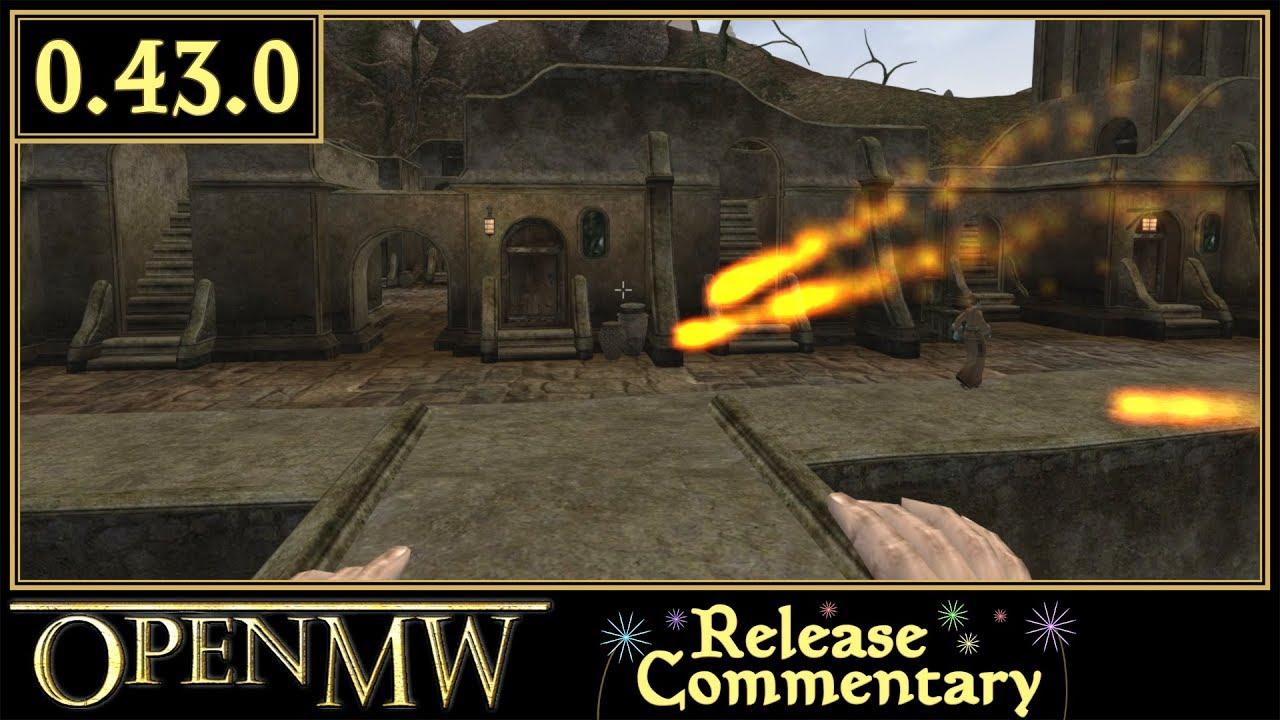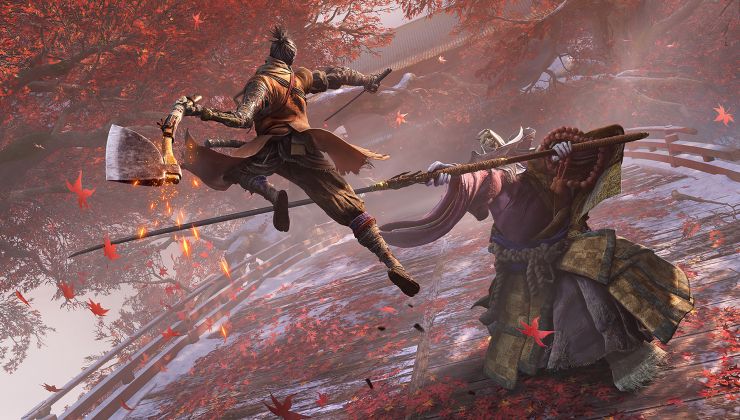OpenMW [Official Site], the open source game engine for Morrowind has been updated again bringing in a few new features and plenty of bug fixes.
Note: It requires the data files from Morrowind, which you can find on GOG.
Take a look at their release video:

Direct Link
Known Issues:
- Shadows are not re-implemented yet
- To use the Linux targz package binaries, Qt4 and libpng12 must be installed on your system
I tried it out personally some time ago and I was extremely impressed, it was very playable and really did feel good. This latest release continues to polish up the overall experience and implement a few new features. It's quite striking just how many bugs they were able to squash with this release!
In terms of features, the AI will now resurface from water to breathe, rain and snow will create water ripples (which looks very cool), keyboard navigation for menus and more. They've also done more work to OpenMW-CS, their content editing tool.
Find the full release notes in their release announcement.
For those interested, there's also the TES3MP project, which is a fork of OpenMW for multiplayer. It may merge with OpenMW in future, to allow once place for both singleplayer and multiplayer.
Quoting: ColomboQuoting: slaapliedjeOblivion and newer they added auto-scaling of creatures. So you can go anywhere at the beginning will still have lower level enemies.
That is not true, not true at all. Autoscaling was there since maybe Arena, for sure from Dagerfall.
Problem was mostly in design philosophy.
There are basically two branches of design, as seen by people. One is fun roller-coaster, construct system in a way to allow player be constantly challenged.
The other is basically pre-created world.
First can feel a bit artificial and when you screw the balance, it is BAD.
Second can have a lot of boring places, some people don't like when they play the game "incorrectly", become too strong and then complain that they don't have any challenge and game is too easy. This approach is problematic especially when game is very linear. Different builds can have different strengths and without way to get some extra XP, player can become stranded, unable to defeat next encounter, but having a no way to get his character stronger.
Morrowind is the later approach, Oblivion and Skyrim the former. So like Gothic, Morrowind has a plenty of characters premade and put into locations by hand. Characters are generally not levelled dungeons and so on. Still, there are random encounters (in outside as well as in dungeons). Those are leveled. But each creature and each location have some level range. Some creatures will not spawn if you are far away from their level. Some will level you only in their level range, i.e.:
range 8-13. Which means that if you are below 8, monster would be in level 8 (if it spawns at all) and if you are above 13, monster will be on level 13 (if it spawns at all, again).
However generally, unlike Oblivion and Skyrim, Morrowind was "broken" by design. Level didn't mean a lot and Morrowind provided PLENTY of powerful ways (magical items, potions, training and powerful armours and weapons if you know where to find them) how to deal with enemies.
Oblivion on the other hand was broken by balance. The used system is not significantly different than Morrowind. Problem was that they tried to make it more important and provide the roll-coaster feeling for players, but they screwed balance and monsters leveled with player all the time. In addition, their power usually (unless you played super-efficient) grew more quickly than player. Which made game actually easier if you didn't level at all. In addition, all equip was autoleveled as well. This means even the almost-unique armours like ebony, daedric and glass were quite common, glass in particular, as light armour, was present on every single random bandit. Oblivion removed a lot of freedom and "exploits" from Morrowind, so it wasn't that easy to combat those overleveled monsters.
They realized it and in Skyrim, they got rid of most of their system completely. Skyrim got rid of all the useless stats and instead put there perks, which can work better for specialization and creation of interesting characters. Unfortunately, they botched it again my making plenty of perks boring. The autolevel was also much better, leveling weapons and armour as well. However, leveling monsters was done in a bit boring way (not that anyone else figured how to make it better), their AI is usually poor and thus monsters have to rise in both HP and DMG. Which makes them bullet sponges. This makes every character slowly approach the master class: archer assassin. Which through sneak attack and hiding back can deal with those bullet sponges. Still, if you don't try to play it on legendary, its fine. Especially if you have immortal followers who can soak some attacks. Or you are summoner.
I think we're talking about the same thing, but in different terms. Morrowind was more like a typical D&D module, if you considered various areas as 'modules'. Where each module/area would be leveled to a specific level of creatures, so even if my character was level 5, if I wandered into a nastier place, I'd be fighting Daedra instead of bandits. In oblivion I'd just run into bandits. It was REALLY noticeable when you're roaming the land in Oblivion and the random encounters went from wolves, to bears to TROLLS!
For what it's worth, Daggerfall was REALLY random. You'd go into a random dungeon (as opposed to story dungeons, which were pre-made) and you'd spend hours running around killing bats and orcs, then randomly a Lich would pop through the wall and kill you. Game was really buggy, you could get a job to kill off some rats in an abandoned house, and run into skeletons right off the bat.
One of the designs that were great and one of the first 'open world' games are the Ultima ones. Where you were plopped down into the world with not a whole lot of background story and you have to go about your business with some sort of grind, but especially Ultima IV where you have to act appropriately with NPCs and do things like give money to beggars for Compassion. But it didn't really scale monsters, while it didn't have that many to begin with, it seemed to scale more upon how big your party was vs what level your character was.




See more from me